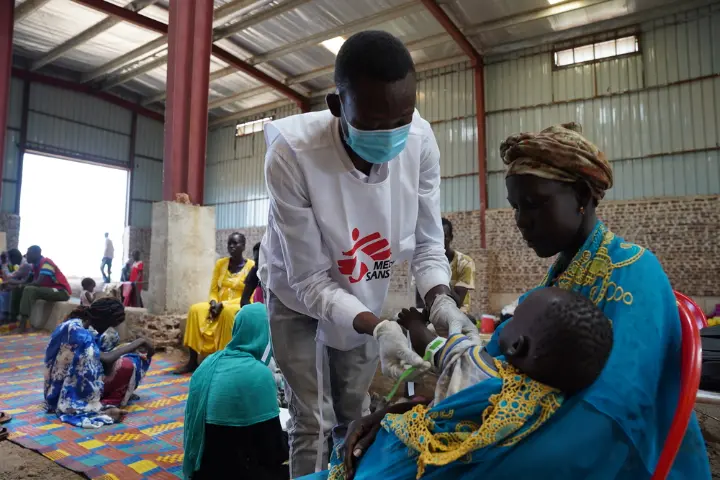JUBA, South Sudan
South Sudan is in trouble again. Violence is getting worse, many people have been forced to leave their homes, and hospitals are being attacked. At the same time, the U.S. government under former President Donald Trump is trying to send people back to South Sudan — even though it’s clearly not safe.
Escalating conflict in South Sudan
In recent months, South Sudan has witnessed a surge in violence, particularly in the Upper Nile and Jonglei states. Clashes between government forces and local militias have resulted in significant civilian casualties and mass displacements.People have been killed, injured, or displaced. Aid workers say thousands of families have fled, and many are hiding in the bush or living in camps with very little food and medicine.
One doctor working with Médecins Sans Frontières (Doctors Without Borders) told the media:
“We’re treating children and women who were caught in the middle of airstrikes. The violence has no respect for life anymore.”

The United Nations warns that the country is on the brink of civil war, with over 130,000 people displaced since February 2025. aljazeera.com+1apnews.com+1, apnews.com+1en.wikipedia.org+1
Controversial U.S. deportations
Amid this turmoil, the Trump administration's decision to deport migrants to South Sudan has drawn sharp criticism. In late May 2025, a group of eight men deported from the U.S.—originating from Latin America, Asia, and South Sudan—along with 13 Immigration and Customs Enforcement (ICE) officers became stranded at a U.S. naval base in Djibouti due to a court order halting their deportation to South Sudan.
Because of this, 8 men and 13 U.S. immigration officers are now stuck in Djibouti, East Africa. The group is confined in a repurposed shipping container with poor living conditions, including extreme heat exceeding 100°F, inadequate medical care, and threats from regional instability.The Guardian
A lawyer for the men said in an interview:
“Sending people to a warzone goes against everything America claims to stand for.”
A federal judge ruled that the Trump administration violated a court order by attempting to deport individuals to South Sudan without proper legal procedures. The administration argues that the men's home countries refused to accept them, leaving South Sudan as an alternative destination. Politico www.npr.org/2025/06/01/g-s1-69780/trump-deportations-south-sudan?
International response and humanitarian concerns
Human rights organizations and legal advocates have condemned the deportations, citing the dire humanitarian situation in South Sudan. The United Nations and Amnesty International have called for the renewal and enforcement of the arms embargo on South Sudan to prevent further escalation of violence.
The deportations have also raised questions about the ethical implications of sending individuals to conflict zones. Legal representatives for the deportees argue that the U.S. government is endangering lives by deporting individuals to a country experiencing severe instability and humanitarian crises. Washington Post
South Sudan is not safe right now. Sending people back there could put their lives at risk. Many believe countries like the U.S. should act more responsibly — especially when it comes to humanitarian international laws and human rights.
As African diplomats and leaders watch this situation, it raises big questions about how countries treat vulnerable people during times of crisis.
Conclusion
The intersection of South Sudan's internal conflict and the U.S.'s deportation practices highlights the complexities of international diplomacy and human rights. As South Sudan faces escalating violence and humanitarian challenges, the global community watches closely, urging for responsible actions that prioritize human safety and uphold international legal standards.